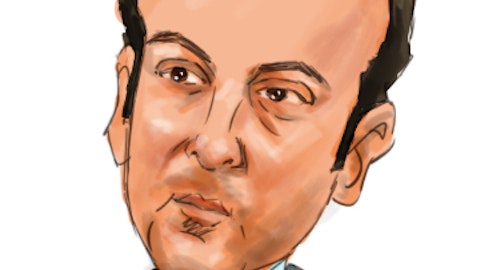Is simplicity the new new thing? The front page of the new issue of Global Risk Regulator — the trade mag for central bankers around the world — features an excellent article by David Keefe about Sheila Bair, Andrew Haldane, and calls for a “return to simplicity”. Bair tells Keefe that “we’re drowning in complexity”:
“The public is tired of rules they don’t understand,” she said, adding: “We should be simplifying the rules, we should be simplifying the institutions for which the rules are made, but it’s going in the opposite direction.” …
Bair said she was in “wholehearted agreement” with Haldane’s attack on the complexity of regulation.
“Regulation”, in this context, means one very specific thing: Basel III, the new code governing the world’s banks. No one is advocating that it be abolished: it’s clearly much more robust than its predecessor, Basel II.
But if Basel II was horribly complicated, Basel III is much more complex still — and, as I and others have been saying for the past couple of years, that’s a real problem. Ken Rogoff puts it well:
As finance has become more complicated, regulators have tried to keep up by adopting ever more complicated rules. It is an arms race that underfunded government agencies have no chance to win.
More recently, bankers themselves have started saying the same thing: yesterday, for instance, Sallie Krawcheck said that the complexity of financial institutions “makes you weep blood out of your eyes”.
So perhaps there’s a consensus emerging that regulation needs to be simplified, trusting heuristics more while spending less time and effort complying with thousands of pages of highly-detailed rules. What matters is not whether financial institutions dot every i and cross every t, so much as whether they are behaving in a safe and sensible manner. After all, one of the main reasons that we haven’t seen any high-profile criminal convictions of bankers for their roles in the financial crisis is just that their compliance officers were generally very good at staying within the letter of the law. Which didn’t really help the system as a whole one bit.
But there are lots of very good reasons why even if we are reaching a consensus on this, that doesn’t mean there’s much if any chance of some new simple system ever actually coming into place.
For one thing, the window of opportunity has closed. In the immediate wake of the financial crisis, regulators found agreement that they should get tough: that had never happened before, and it’s likely that it will never happen again. Even in the Basel III negotiation process, national regulators tended to push hardest for regulations which would be felt the most by banks in other countries, rather than their own. But at least everybody was in the vague vicinity of the same page. Without another major crisis, no one feels any real urgency to implement yet another round of major regulatory change, especially before Basel III has even been implemented. And without that sense of urgency, nothing is going to happen.
And more generally, there’s a ratchet system at play here. It’s easy to make a simple system complex; it’s pretty much impossible to make a complex system simple. All of us live in a world of contracts and lawyers — and the financial system much more than most. Financial regulation will become simpler the day that contracts become shorter and easier to understand, which is to say, never.
How has the financial-services sector managed to make an ever-greater proportion of total profits over time? By extracting rents from complexity. As a result, any attempt to radically simplify anything in the sector is going to run straight into unified and vehement opposition from pretty much every bank and financial-services company in the world. (Note that Sallie Krawcheck, like Sandy Weill, only started criticizing bank complexity after she left the industry.)
So while banks opposed Basel III, at least they got increased complexity out of it, which means that the barriers to entry in the industry were raised. Which is good for them, and bad for the rest of us. Why did Simple, for instance, take so long to launch? Because it’s very, very difficult to create anything simple in today’s banking system. Complexity is here to stay, whether the likes of Bair and Haldane and Krawcheck like it or not. And with complexity comes hidden risks. Which means we’ll never be as safe as any of these people would like.
Related Tickers: iShares Dow Jones US Financial (NYSEARCA:IYF), SPDR KBW Bank (NYSEARCA:KBE), PowerShares Dynamic Finl Sec Fnd (NYSEARCA:PFI), Financial Select Sector SPDR (NYSEARCA:XLF), PowerShares Dynamic Banking Sec (NYSEARCA:PJB)
Note: This article was originally published at Reuters.

